The future can be bright
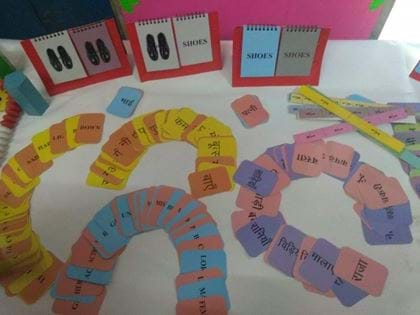
Our colleague Pankaja Balaji reflects on a week of stimulating events and partner visits in India to mark the one-year results of the Quality Education India Development Impact Bond.
Big goals
The Quality Education India Development Impact Bond (QEI DIB) has ambitious goals. It aims to improve learning outcomes for hundreds of thousands of children, by demonstrating the role that outcome-based funding can play in achieving impact and driving innovation in the education sector.
Launched in 2018, the QEI DIB is a four-year programme which has successfully convened 15+ partners from the public, private and philanthropic sectors globally to improve learning outcomes for primary school students in India.
At the end of its first year of operations the DIB has impacted 100,000 students in the age group of 5-11 years. Through four different models including remedial classes and direct management of community classrooms, service partners Gyan Shala, Society for All Round Development and Kaivalya Education Foundation have worked in 600 schools across New Delhi and Ahmedabad, to improve numeracy and literacy.
Taking stock of year one
The results of the first year have been heartening. Naturally they have been accompanied with immense learning. In year one, projects funded by the QEI DIB increased the number of children who achieved basic educational outcomes by 30%. Further, 40% of the participating schools exceeded their targets for improving proficiency levels of students! On the flip side, 36% of schools, covered by a single intervention, under-performed.
The DIB as an instrument provides immense flexibility to the partners and service providers. Data collected at multiple points throughout the lifecycle is used to take decisions and make course corrections. In practice this meant that the model which under-performed was discontinued in favour of supporting the other models which had shown positive results. This demonstrates the ability of the DIB to use data and evidence to assess, learn and improve programme delivery and performance.
Learnings from year one of the QEI DIB are being used by the respective service provider as well as others, to strengthen operations in year two.
Feet on the ground
Given that the consortium partners hail from various parts of the world, to build deeper engagement with the instrument and implementing partners, a week-long agenda of field visits and interactive sessions was organised in New Delhi and Ahmedabad, in the first week of July 2019.
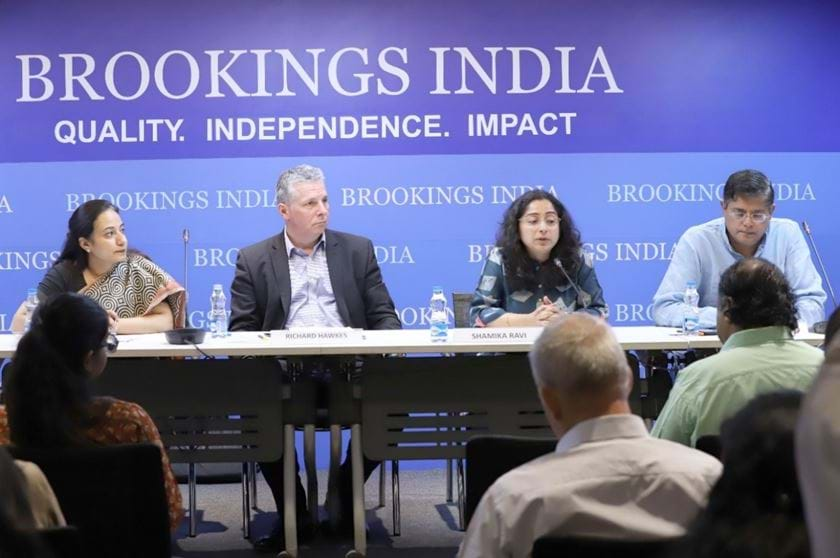
The week began in New Delhi with panel discussions: Impact Investing in India and Learnings from Year One of the QEI DIB at Brookings India. Panellists touched upon the need for social finance to shake up a plateaued development sector, build efficacy and efficiency into development funding, as well as the need for collaboration to unlock impact at scale.
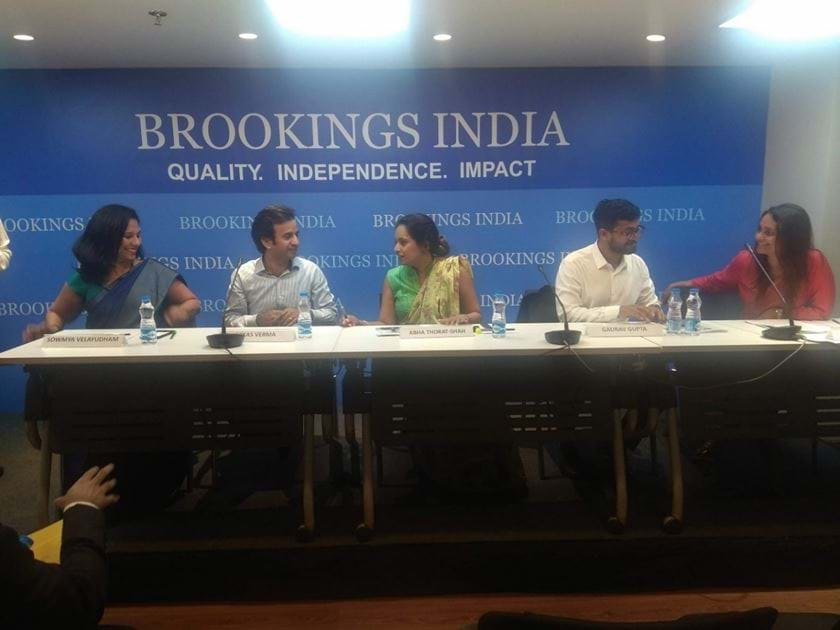
Day two was the partners’ first foray into city schools with service provider Society for All Round Development (SARD). SARD’s model supports supplementary remedial programmes within municipal schools, as well as teacher training, to close learning gaps for children performing below grade levels.
After a brief presentation, SARD’s curriculum heads and trainers took the partners through various interactive teaching aids, explaining the theory behind their use.
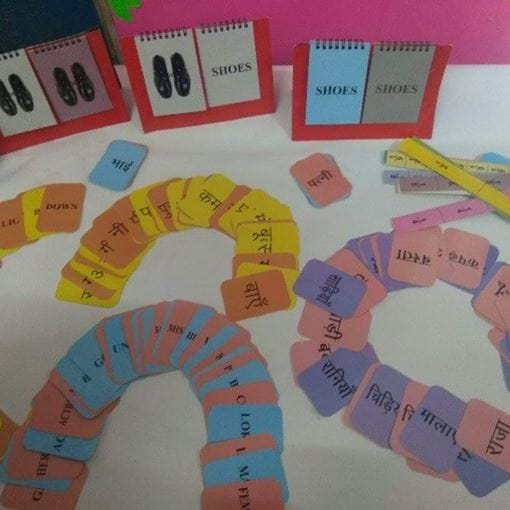
The school visits were a chance for the partners to become students themselves. Visitors were welcomed into colourful classrooms with puppet shows and humorous songs, and taught maths through games and group activities. Conversations with school principals and teachers brought home the importance and role of an invested school leadership in improving learning outcomes.
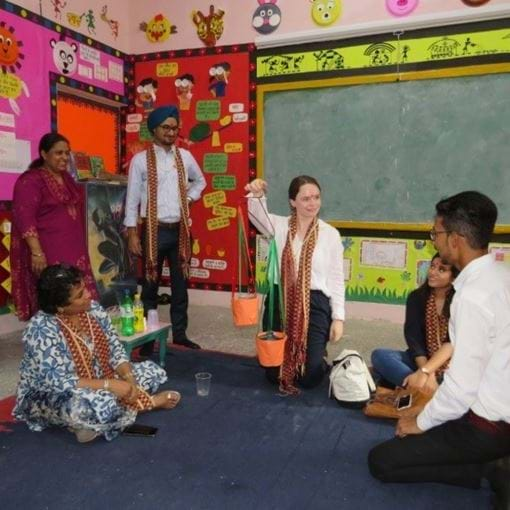
Day three was spent engaging with the technical aspects of the DIB. Gray Matters India presented the evaluation metrics and assessment process of the DIB, to help partners understand what the year one results meant in terms of learning on the ground. This involved a deep dive into what different measures of educational outcomes were, how they were applicable in India’s education system, what these outcomes meant in practical skills and much more.
Dalberg followed this up with learnings and insights from working closely with service providers, in their role as Performance Manager for the DIB. They spoke about the nature of support the service providers required as well as some of the challenges faced during implementation in year one.
The workshop closed with a presentation by Mindspark, the newest service provider to join the consortium who brought along Virtual Reality headsets for partners to have a first-hand experience of their computer-based adaptive learning programme.
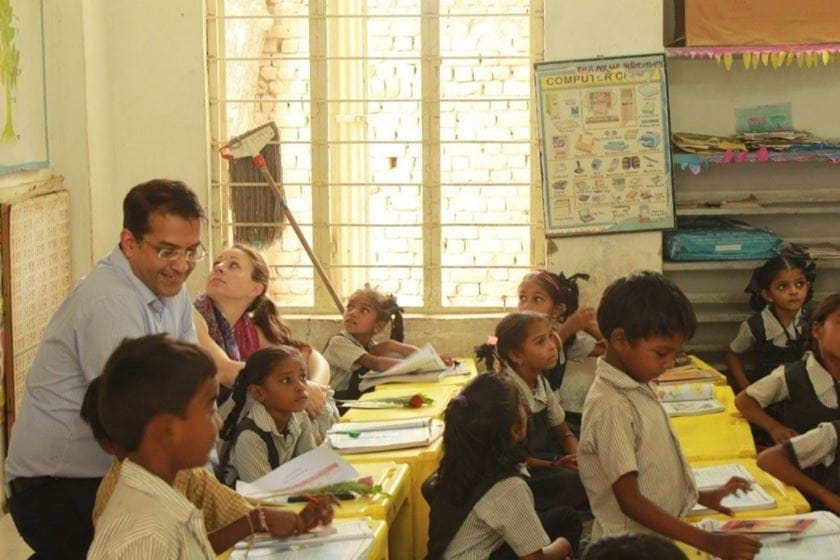
Day four saw the partners in Ahmedabad for a visit with Kaivalya Education Foundation Gandhi Fellows who work with school principals and teachers to improve the quality of school leadership, classroom teaching and motivation among teachers. The visit began with a fun song, often used before the lessons begin, to get students excited about learning. Our partners joined in enthusiastically as they sang about purple vegetables and upside-down worlds!
During the school visit, partners were able to converse with staff about what the support provided by Fellows meant to them personally as educators, as well as its impact on student learning. They also got the chance to talk to the young students about their teachers and lessons.

On the last day, partners accompanied Gyan Shala staff into the heart of Ahmedabad’s slums to see how Gyan Shala’s community classrooms were delivering quality education to students at subsidised costs. Small classes of 15-20 students are taught by community members turned teachers. Lesson plans are prepared by Gyan Shala and teachers are trained monthly on how to deliver them in class. Often, young girls from the community who are no longer able to pursue their education due to social or economic reasons, see this is an opportunity to earn a living without travelling too far. These monthly training sessions have become a new avenue of learning for these young women.
Building the future
Seeing classrooms and homes next to toxic garbage dumps and production units was a reminder of the role education can play in helping people and communities to escape poverty, as well as the need for accessible quality learning for those who can afford only the very minimum in life.
Despite significant economic development, India continues to see growing inequality. With a significant number of children entering the education system every year, it becomes of paramount importance that public institutions not only cater to their needs, but also provide them the opportunity and means to excel.
Seeing the depth and scope of the challenges, faced by stakeholders in the education sector, it is evident that there is little room to waste time, money and resources on solutions that don’t work or work for only a small group of beneficiaries. The need of the hour is to innovate solutions that are backed by evidence and can be scaled with minimal effort.
The QEI DIB’s aim to improve learning outcomes via innovative and scalable solutions is an attempt to change the narrative in the global education sector. Over the next three years the DIB will continue to demonstrate its successes and learnings in the hope of moving the needle and addressing the education challenge in India.
Pankaja Balaji, India Projects Officer - British Asian Trust
